Filter by
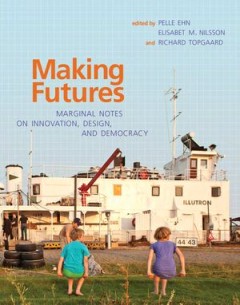
Making Futures : Marginal Notes on Innovation, Design, and Democracy
Experiments in innovation, design, and democracy that search not for a killer app but for a collaboratively created sustainable future. Innovation and design need not be about the search for a killer app. Innovation and design can start in people's everyday activities. They can encompass local services, cultural production, arenas for public discourse, or technological platforms. The approach i…
- Edition
- -
- ISBN/ISSN
- 9780262027939
- Collation
- -
- Series Title
- -
- Call Number
- 650
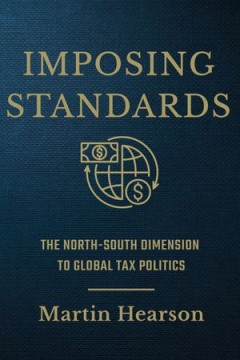
Imposing Standards : The North-South Dimension to Global Tax Politics
In Imposing Standards, Martin Hearson shifts the focus of political rhetoric regarding international tax rules from tax havens and the Global North to the damaging impact of this regime on the Global South. Even when not exploited by tax dodgers, international tax standards place severe limits on the ability of developing countries to tax businesses, denying the Global South access to much-need…
- Edition
- -
- ISBN/ISSN
- 9781501755996
- Collation
- -
- Series Title
- -
- Call Number
- 650
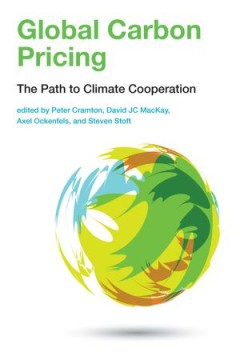
Global Carbon Pricing : The Path to Climate Cooperation
- Edition
- -
- ISBN/ISSN
- 9780262036269
- Collation
- -
- Series Title
- -
- Call Number
- 650
- Edition
- -
- ISBN/ISSN
- 9780262036269
- Collation
- -
- Series Title
- -
- Call Number
- 650

Free Innovation
A leading innovation scholar explains the growing phenomenon and impact of free innovation, in which innovations developed by consumers and given away “for free.” In this book, Eric von Hippel, author of the influential Democratizing Innovation, integrates new theory and research findings into the framework of a “free innovation paradigm.” Free innovation, as he defines it, involves inn…
- Edition
- -
- ISBN/ISSN
- 9780262035217
- Collation
- -
- Series Title
- -
- Call Number
- 650
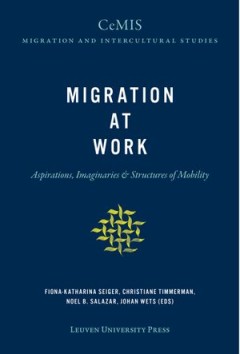
Migration at Work : Aspirations, Imaginaries & Structures of Mobility
The willingness to migrate in search of employment is in itself insufficient to compel anyone to move. The dynamics of labour mobility are heavily influenced by the opportunities perceived and the imaginaries held by both employers and regulating authorities in relation to migrant labour. This volume offers a multidisciplinary approach to the study of the structures and imaginaries underlying v…
- Edition
- -
- ISBN/ISSN
- 9789461663443
- Collation
- -
- Series Title
- -
- Call Number
- 650
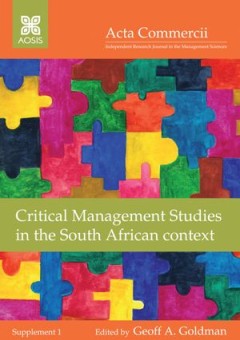
Critical Management Studies in the South African context
The purpose of the book is to establish the first formalised scholarly work on critical management studies (CMS) in the South African context. The book is a collection of seven chapters, six of which employ a conceptual methodology and one of which follows an interpretive paradigm employing qualitative methods of inquiry. CMS is a relatively young school of thought, arising in the early 1990s a…
- Edition
- -
- ISBN/ISSN
- 9781928396123
- Collation
- -
- Series Title
- -
- Call Number
- 650
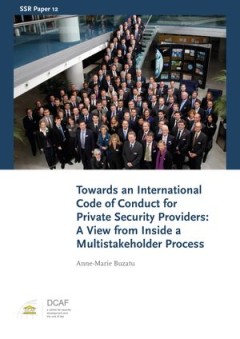
Towards an International Code of Conduct for Private Security Providers
The use of private security companies (PSCs) to perform services that are traditionally associated with the state presents a challenge to regulatory and oversight frameworks. Analyzing developments leading to the International Code of Conduct for Security Providers (ICOC) and the ICOC Association, this paper argues that a multistakeholder approach to develop standards adapted for the private se…
- Edition
- -
- ISBN/ISSN
- 9781911529392
- Collation
- -
- Series Title
- -
- Call Number
- 650
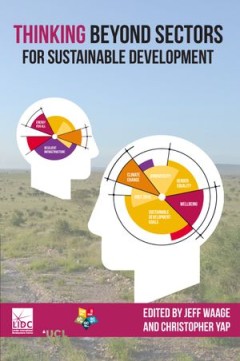
Thinking Beyond Sectors for Sustainable Development
This book brings together a series of working papers, produced by interdisciplinary groups of academics within the project, on progress made under the Millennium Development Goals and introduces current debates surrounding the Sustainable Development Goals and the post-2015 agenda. Originating from an interdisciplinary, multi-institution research collaboration, Thinking Beyond Sectors for Susta…
- Edition
- -
- ISBN/ISSN
- 9781909188433
- Collation
- -
- Series Title
- -
- Call Number
- 650

Pro-ecological Restructuring of Companies : Case Studies
This book presents a practical approach to pro-environmental challenges faced by companies in the process of restructuring. It contains a broad variety of case studies from different economic sectors, and small and large businesses, in four European countries: Ukraine, Romania, Germany and Poland. The studies are the results of surveys of companies that had either already restructured or were p…
- Edition
- -
- ISBN/ISSN
- 9781911529484
- Collation
- -
- Series Title
- -
- Call Number
- 650
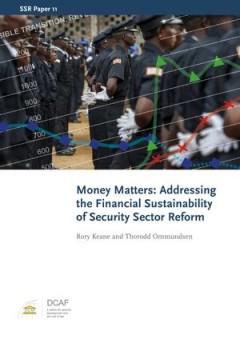
Money Matters : Addressing the Financial Sustainability of Security Sector Re…
Although the financial sustainability of United Nations (UN) support to institutional capacity building in post-conflict contexts may be the least analysed topic on the peacebuilding agenda, understanding the costs of rebuilding and maintaining the security sector should be one of the most important priorities for security sector reform (SSR) practitioners today. Through innovative partnerships…
- Edition
- -
- ISBN/ISSN
- 9781911529385
- Collation
- -
- Series Title
- -
- Call Number
- 650
 Computer Science, Information & General Works
Computer Science, Information & General Works  Philosophy & Psychology
Philosophy & Psychology  Religion
Religion  Social Sciences
Social Sciences  Language
Language  Pure Science
Pure Science  Applied Sciences
Applied Sciences  Art & Recreation
Art & Recreation  Literature
Literature  History & Geography
History & Geography